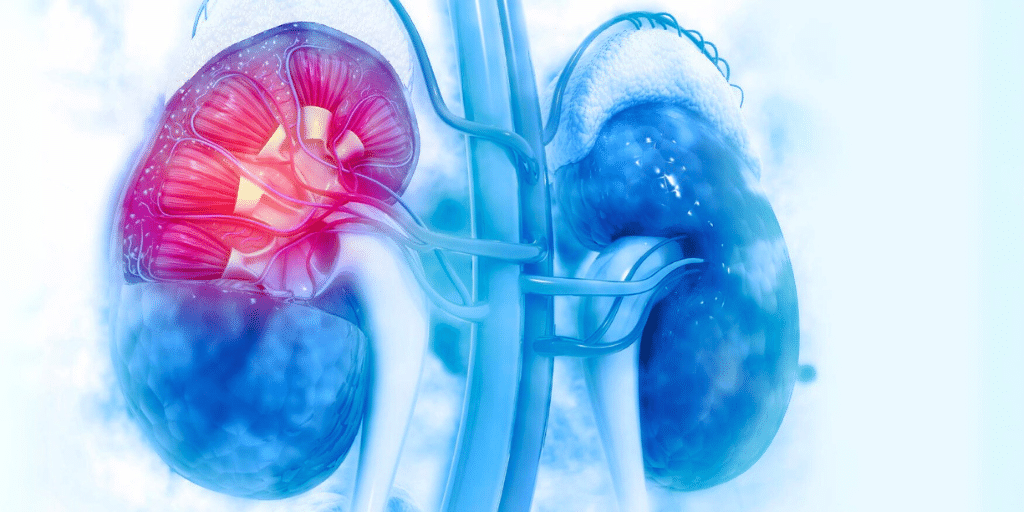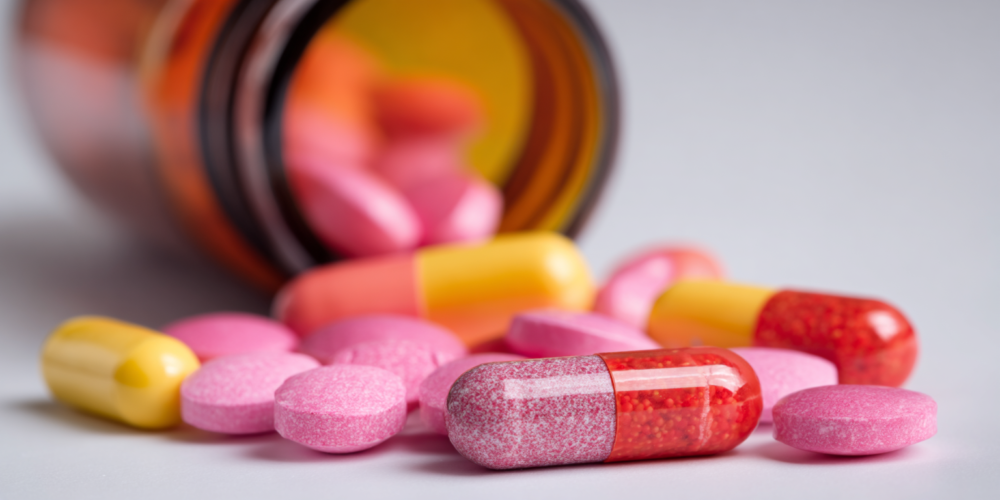
A man walks into his doctor’s office for a routine checkup. He feels fine, maybe just a little more tired than usual. His blood pressure has been creeping up, and he’s been waking up once or twice a night to use the bathroom. He chalks it up to getting older. A week later, his doctor calls with shocking news: “Your kidneys are only working at 30%. You have stage 3B chronic kidney disease.” No pain, no major warning signs, just silent failure.
This story is far too common. Your kidneys are absolutely incredible organs. Every single day, they filter about 200 liters of fluid—that’s like 400 standard water bottles! In doing so, they regulate your body’s minerals, balance your fluids, and perform the vital job of eliminating toxins. But they can’t do their job if you’re unknowingly sabotaging them with everyday habits. Today, we’re going to pull back the curtain on the top 10 worst habits that damage your kidneys, and more importantly, we’ll discuss what you can do right now to protect them. (Based on the expertise of Dr. Sten Ekberg)
🔑Key Takeaways
- Your kidneys can suffer significant damage silently, with few noticeable symptoms until the later stages.
- The leading causes of kidney damage are often linked to metabolic issues like high blood pressure and insulin resistance, which are driven by diet and lifestyle.
- Common habits, such as eating processed foods, chronic dehydration, and misusing over-the-counter drugs, place a heavy burden on your kidneys.
- Protecting your kidneys involves adopting a whole-foods diet low in sugar and processed carbs, managing stress, staying hydrated, and monitoring key health markers.
- Even if you have some kidney damage, many of these strategies can help slow progression and support your remaining kidney function.
➡️1. Spiking Your Blood Sugar with Processed Carbs

One of the most damaging habits for your kidneys is regularly consuming foods that send your blood sugar on a rollercoaster. I’m talking about things like white bread, pasta, pastries, soda, and even seemingly healthy pressed fruit juices. When you eat these foods, your blood sugar spikes dramatically. This high level of sugar in your blood creates what we call microvascular injuries—tiny wounds to the smallest blood vessels in your body. Your kidneys are packed with these delicate vessels in their filtering units, called glomeruli. This damage starts happening long before you’d ever be diagnosed with full-blown type 2 diabetes.
The solution is to shift your diet away from these processed carbohydrates. Instead, you want to build your meals around whole foods. Focus on non-starchy vegetables and leafy greens, which are low in carbs and high in nutrients. Include quality protein sources like meat, fish, chicken, and beans. To feel full and get enough energy, top off your meals with healthy fats like real butter, extra-virgin olive oil, coconut oil, lard, and tallow. To know if you’re spiking your blood sugar, you can ask your doctor for an A1C test, which shows your average blood sugar over three months. An optimal A1C is below 5.4%. For real-time feedback, you can use a simple glucometer to check your blood sugar 60-90 minutes after a meal. Your goal is to keep it under 110 mg/dL (6.1 mmol/L) to prevent that damaging spike.
➡️2. Consuming Processed Foods Loaded with Phosphates

Processed foods are a double-edged sword for your kidneys. They are often loaded with additives, including inorganic phosphates, which are used as preservatives and flavor enhancers. You’ll find these hidden in soft drinks, deli meats, snack foods, and even dried fruit, which many people assume is a healthy choice. Unlike the natural phosphates found in whole foods, your body absorbs these artificial phosphates very easily, leading to high levels in your blood. Your kidneys are then forced to work overtime to filter out this excess phosphate, which can lead to kidney damage and even contribute to bone and heart disease over time.
Furthermore, processed foods are nutritionally bankrupt. The manufacturing process strips out essential vitamins, minerals, and fiber that your body needs to function and heal. What’s left is a concoction of preservatives, synthetic flavorings, unhealthy fats, and other toxins that add to the detoxification burden on your kidneys. The answer is simple, though not always easy: stop eating processed foods. Learn to cook your meals at home from scratch. If you’re used to a diet of fast food and packaged meals, this transition may take time. Start small, but be consistent. You’ll quickly realize that real food not only tastes better but provides your body with the clean fuel it needs to thrive.
➡️3. Relying on Over-the-Counter Painkillers

Many people pop nonsteroidal anti-inflammatory drugs (NSAIDs) like ibuprofen, naproxen, or diclofenac without a second thought for aches and pains. While they can be effective for occasional use, relying on them regularly is a serious threat to your kidneys. These drugs work by constricting the blood vessels, which reduces the blood flow directly to your kidneys. When you reduce blood flow, you’re not just hindering the filtering process; you’re also cutting off the supply of oxygen and nutrients that the kidney tissue needs to repair and maintain itself.
This problem is magnified if you’re also dehydrated. When your overall blood volume is low due to a lack of water, taking an NSAID further squeezes the blood supply to your kidneys, creating a perfect storm for acute kidney injury. Instead of reaching for a pill, focus on reducing the root cause of inflammation. This starts with your diet—swapping inflammatory processed foods for anti-inflammatory whole foods.
You can also incorporate powerful natural anti-inflammatories. Turmeric (specifically a high-bioavailability curcumin supplement) is incredibly effective. Omega-3 fatty acids, found in fatty fish like salmon and sardines or taken as a supplement, also help quell inflammation. Finally, ensure you’re getting enough magnesium, a mineral crucial for muscle relaxation and reducing inflammation, which is abundant in leafy green vegetables.
➡️4. Living in a State of Chronic Dehydration

Are you drinking enough plain, clean water? Or are you relying on coffee, tea, and soda to get you through the day? Think of it like washing a car. You can lather it up with soap, but if you try to rinse it with anything other than clean water, you’ll be left with a sticky, dirty residue. Your kidneys need a steady stream of water to effectively flush out waste products and toxins. When you’re chronically dehydrated, the concentration of this waste increases, raising your risk for painful kidney stones.
Dehydration also means less water in your bloodstream, which makes your blood thicker and reduces your overall blood volume. This forces your heart to work harder and dramatically reduces your kidneys’ filtration efficiency. They simply can’t do their job properly if they aren’t receiving enough fluid to process. The solution is straightforward: drink clean water regularly throughout the day. Don’t wait until you’re thirsty, as that’s already a sign of dehydration. If you work outside, exercise intensely, or sweat a lot, it’s also a great idea to add a high-quality electrolyte supplement to your water to replenish the crucial minerals you lose through sweat.
➡️5. Ignoring High Blood Pressure

High blood pressure and kidney disease are locked in a vicious cycle. Damaged kidneys can cause high blood pressure, and that high blood pressure, in turn, inflicts further damage on the kidneys. Doctors typically consider a blood pressure of 120/80 mmHg to be normal. While they may express concern if you creep above that, the real danger zone for your kidneys begins to accelerate once you’re consistently above 140 mmHg. At levels of 160 mmHg or higher, you are causing clear and consistent damage to your blood vessels.
The high pressure creates excessive friction inside the tiny, delicate micro-vessels of your kidneys. Over time, this damages the vessel walls, causing them to harden and narrow. This reduces the kidneys’ ability to filter fluid and waste and, critically, it impairs oxygen delivery. The kidneys are extremely sensitive to a lack of oxygen, a state called hypoxia. Even slight reductions in oxygen can cause kidney cells to die. The single most effective thing you can do to protect your kidneys from high blood pressure is to reduce insulin resistance, which is a primary driver of hypertension. For those who already have some kidney damage (CKD stage 2 or 3A) combined with insulin resistance, it’s also wise to moderate your sodium intake. In later stages of CKD, you must work with a nephrologist to carefully manage both sodium and potassium, as your kidneys can no longer regulate them properly.

